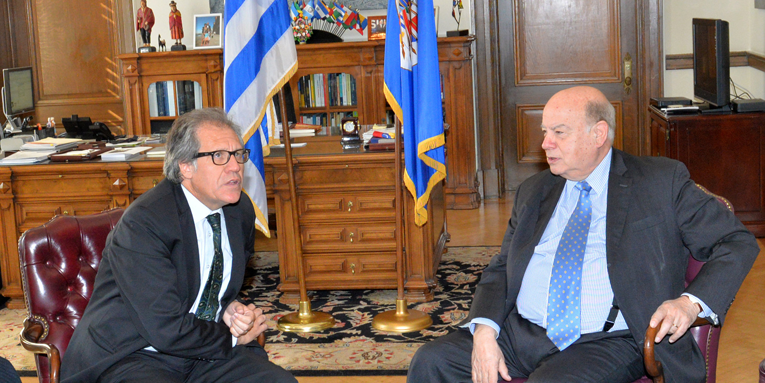Organization of American States’ new leader calls for safe, legal abortion in Latin America
20.10.15
The recently appointed Secretary General of the Organization of American States, Luis Almagro, has clearly positioned himself as an advocate for safe, legal abortion and has called for the repeal of punitive abortion laws across Latin America and the Caribbean.
In his September 27 remarks at the Global Leaders Meeting on Gender Equality and Women’s Empowerment, Almagro said “the Americas continue to have some of the most restrictive laws regarding sexual and reproductive rights and freedoms, and that reality has to change. Thousands and thousands of women die from illegal abortions every year in the Americas.” In Nicaragua and El Salvador, where Ipas works, abortion is banned completely.
“We have to fix this kind of genocide,” he said, emphasizing that progress on other issues of women’s equality such as poverty, employment and political participation cannot be addressed until women’s basic human rights to life and health are fulfilled.
Almagro joins a growing field of regional leaders calling for the repeal of criminal abortion laws. Advocates for women’s rights in the Americas hope this trend will build an environment that supports policy and law change to increase women’s access to safe abortion.
Such change is needed for the region to fulfill its commitments to the Montevideo Consensus, which calls for securing the sexual and reproductive rights and health of all people, without discrimination based on sex, age, ethnicity, sexual orientation or gender identity, among other issues. In addition, nations across Latin America and the Caribbean must address unsafe abortion in order to achieve the new Sustainable Development Goals related to maternal health and gender equality.
“Almagro’s remarks not only support advocacy to repeal abortion bans in countries like Nicaragua, Chile and El Salvador, but also highlight the fact that access to safe and legal abortion in the region is key to achieving social justice and gender equality as a foundation of women’s and girls’ human rights,” says Cecilia Espinoza, Ipas youth and policy advisor.




